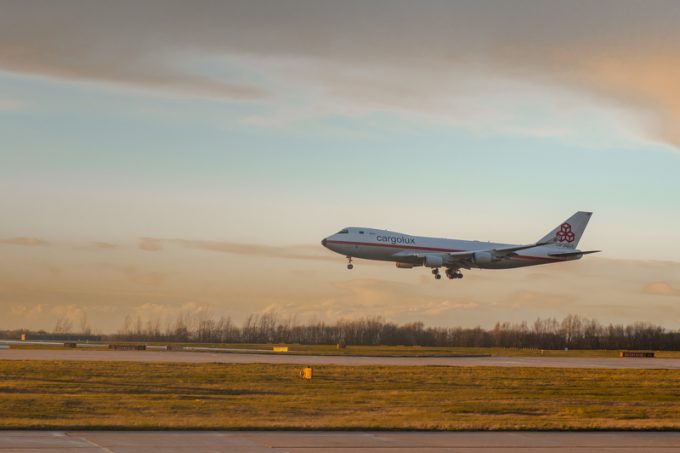DFDS celebrates Ekol buy, and says shift to electric trucks going 'better than expected'
They have been partners since 2018, started acquisition talks in 2022 and now DFDS has ...

Cargolux has found a new source of sustainable aviation fuel (SAF) via a deal with Norsk e-Fuel, a project developer.
Norsk e-Fuel, which has agreed a similar deal with NorwegianAir, is set to start production of e-fuels in Mosjøen, Norway, to supply e-fuel to airlines after 2026. It hopes to add two more plants by 2030.
“We have ambitious plans to ramp-up e-fuel production as soon as possible to deliver fossil-free fuels to the aviation industry,” said CEO, said Karl Hauptmeier.
“The commitment of our new partners, Cargolux and Norwegian, … shows the understanding of the critical role of e-fuels in shaping a future for aviation that is free from fossil fuels—both in Norway and across Europe.”
The total volume of the agreement with the two airlines is more than 140,000 tonnes, and the airlines will provide “strategic support for the development of two additional production facilities by 2030”, he added.
Richard Forson, CEO of Cargolux, said: “E-fuel will be a major pillar to achieve net zero carbon emissions by 2050 in aviation. E-fuels are based on abundant feedstock, such as carbon dioxide, and when produced with green electricity, this project will provide one of the highest greenhouse gas savings, compared to conventional jet fuel.
“We look forward to offering our customers the option to have the ability to voluntarily enhance their sustainability initiatives through the use of e-fuels for their shipments as of late 2026.”
Airlines have long been concerned that despite IATA’s commitment to reach net zero by 2050, they have very few options open to them. Cargo airlines in particular have found it hard to source e-fuels, as any volumes available tend to be acquired by larger passenger and combination carriers.
Lufthansa Cargo’s director of sales and handling, Georg Theis, told delegates at Tiaca’s event in Brussels in November: “SAF is an important topic. The challenge is that we need a supply – and it’s just not there. Politicians have to help. We need high-efficiency aircraft and largescale production of SAF – but that’s not something airlines can do.”
Yossi Shoukroun, CEO of Challenge Group, however, questioned whether SAF was truly sustainable over its lifecycle, but added: “I don’t see electric, or another alternative, so we’ll have to rely on SAF.”
Norsk e-Fuel also announced that Norwegian Air would become a shareholder, joining Paul Wurth, part of SMS Group, which is leading the shareholder group, and has agreed to invest an additional €5.5m into Norsk e-Fuel, which it has supported since it was founded in 2019.
Thomas Hansmann, CTO of SMS Group, added: “We strongly welcome the collaboration with Norwegian. Through the execution of the offtake agreement, we have fortified our position for upcoming projects. We now anticipate launching the next phase, focusing on the FEED study to bring the project up to its realisation.”
Comment on this article